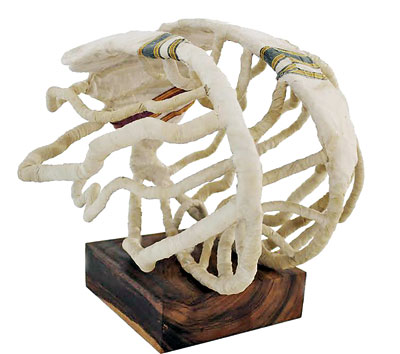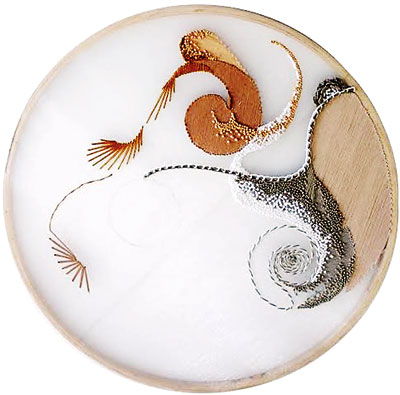It’s their stories; whether it’s gender or war
View(s): Self-Portraits is the name of the exhibition by three Jaffna University graduates now on in Colombo. Here’s why.
Self-Portraits is the name of the exhibition by three Jaffna University graduates now on in Colombo. Here’s why.
Illangovan Dharshiya’s works reveal the politics of identity from her gendered position. She uses embroidery both as a medium as well as meaning in her art. Here embroidery is a medium that, being identified as feminine and associated with the hobby of elite women or livelihood of the economically poor, becomes a political weapon to question the social control of women.
Jasmine Nilani Joseph’s series of pen and ink drawings of fences — by mapping the shifting modes of fencing during war, pre-war and post-war northern Sri Lanka— unpacks the idea of boundaries. In a way, her works try to understand her positioning beyond binary categories such as history /memory, personal /public, special/ temporal and actual/virtual. Her drawings portray fences not only as borders but also as symbols of ownership, power, belonging, and as sites of contestation and conflict.
Kirusnananthan Inkaran was, like many others, caught in the last phase of the war and went through the harshest experiences. His sculptures present the artist as a victim as well as a witness. By using the materials and techniques that are employed in treating wounds and healing pain, he tries to portray his wounded self.
This exhibition, curated by Thamotharampillai Shanaathanan marks another stage in their journey started in late 2015. This exhibition comes as part of a process that involved training the graduates, who have an ambition to choose art for self expression, through methods of mentoring and facilitation. A similar exhibition, titled ‘Seven Conversations’ was jointly curated by Sharmini Pereira and T.Shanaathanan in July 2015, with the support of Saskia Fernando Gallery, Colombo.
The exhibition that opened on January 26 will continue until February 9 at the Saskia Fernando Gallery on Horton Place, Colombo 7 from 10 a.m. to 6 p. m.



